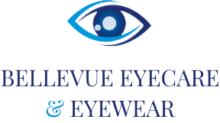Each year, cataracts affect millions of people, including more than half of all Americans aged 60 and older. A cataract is a painless clouding of the eye's natural lens that is caused by a buildup of protein. A cataract can form in one or both eyes. If left untreated, cataracts worsen over time and interfere with everyday activities such as reading or driving. Night vision is usually most affected. When cataracts are in their early stages, people are helped by brighter lighting. As cataracts get worse, however, most people require surgery.
Risk Factors for Cataracts
In addition to aging, other factors, including the following, can increase the risk of developing cataracts:
- Diabetes
- Smoking
- Obesity
- Excessive alcohol use
- Excessive exposure to sunlight
- Exposure to radiation
- Family history of cataracts
- High blood pressure
- Previous eye injury or surgery
- Prolonged use of corticosteroid medications
In rare instances, infants are born with cataracts, which may be the result of an infection, such as rubella, contracted by the mother during pregnancy. They may also occur in combination with some other birth defect. Occasionally, infants develop cataracts shortly after birth.
Diagnosis of Cataracts
Several tests, including the following, are performed to diagnose cataracts:
- Retinal examination under pupil dilation
- Visual acuity test
- Slit-lamp examination
- Tonometry to test intraocular pressure (IOP)
In combination, such tests help determine whether a patient has cataracts, or whether her or his vision problems have some other cause. They also assist in evaluating the degree of visual impairment, and whether surgery should be performed.
Symptoms of Cataracts
People with cataracts often do not realize they have them until vision is affected. Cataract symptoms include the following:
- Blurred, hazy or double vision in one eye
- Decreased color perception
- Sensitivity to bright light
- Poor night vision
- Perception of halos around lights
- Frequent changes in corrective-lens prescriptions
Yellow-tinged vision is also an indicator of cataracts.
Treatment of Cataracts
Early cataracts can sometimes be treated with nonsurgical methods, including the following:
- New corrective-lens prescriptions
- Anti-glare sunglasses
- Magnifying lenses
- Brighter lighting
If cataracts begin to interfere with reading ability, work, night driving or other daily activities, cataract surgery may be recommended. If cataracts are in both eyes, surgery is performed, usually 4 to 8 weeks apart, on one eye at a time. Cataract surgery is the most common surgical procedure in the United States.
Prevention of Cataracts
Although cataracts cannot be prevented, their development can sometimes be delayed by the following:
- Wearing wide-brimmed hats to block sunlight
- Wearing sunglasses that block ultraviolet rays
- Not smoking; not drinking excessively
- Eating a diet high in antioxidants
Left untreated, cataracts cause serious visual impairment. In most cases, however, they can be effectively treated with surgery once they become intrusive in everyday life.

